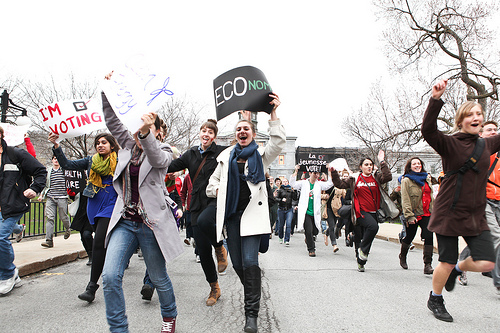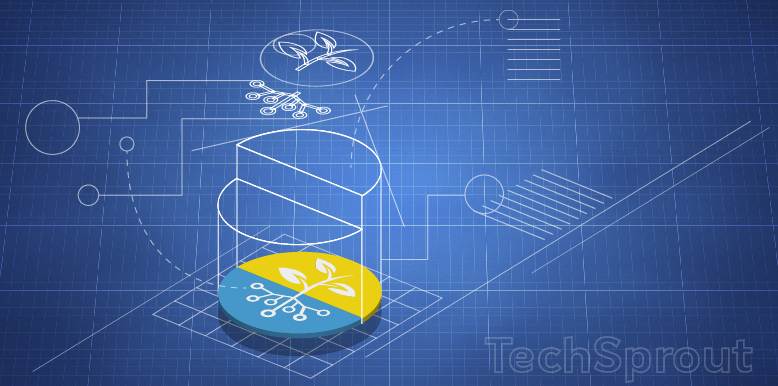On Monday May 2, 2011 Canadians will be voting in the 41st Canadian Federal Election. The election comes as the result of non-confidence vote held on March 25th, 2011 that saw the defeat of the Conservative party’s cabinet in the House of Commons on a motion declaring the Government to be in Contempt of Parliament – a first in the history of the Commonwealth of Nations.
And well the attention of many is on the Candidates, their platforms and the future of Canada, there’s a groundswell of people wondering: “But what am I going to do with my Twitter account?” Because on May 2nd there is essentially going to be a media black out, and that includes Twitter and Facebook.
Some background is in order here. In 1938, when radio was the dominant form of media, Canada’s election law was amended to include a ban on the ‘premature transmission’ of electoral results across time zones. The thought behind this law was that reporting elections results from the East, before the polls close in the West, might have an affect on voter’s choices across time zones. For the most part this amendment went uncontested as newspapers, radio programs and television stations would abide by the law.
Fast forward to this election and we can see how this law is going to effect not just media outlets, but also average citizens. Many social media applications are considered to be public forums that are covered under Section 329 of the Canadian Elections Act. As a result, the act of tweeting or sharing results on Facebook (without prior permission from the government) could come with a hefty fine or even jail time. A maximum sentence for ‘premature transmission’ of election results is a fine of $25, 000 or up to 5 years in jail.
Initial reactions to this law’s effect on social media users were mixed, many people shrugged it off and figured that this must just be an outdated law that they didn’t have to worry about. At least that was the case until media outlets reminded people of the elections in 2000. In 2000, Elections Canada brought charges against a Vancouver blogger after he published election results from Atlantic Canada – he was fined $1, 000 for his blog post. Despite fighting this ruling all the way up to the Supreme Court of Canada, the conviction was held in a 5-4 vote. With the speed and intensity of social media use during this election, many broadcasting corporations wondered what they could possibly do with their real time website updates, live broadcasting and of course their social media strategies. In an attempt to change the restrictions on reporting, the Canadian Broadcast Corporation (CBC) and the Canadian Television Network (CTV) went to court to seek a declaration that Section 329 was unconstitutional. In the end, the courts declined to hear the case before the May 2nd election.
So as it stands now, anyone who shares elections results before the closing of polls in Western Canada will risk being in violation of the law and face charges and possible jail time. When Elections Canada was asked what they would do about this all they could respond was: “The agency has no choice but to uphold and administer the legislation. People can send texts and private emails to each other but as soon as it hits public forums such as Facebook or Twitter it will be considered a violation.”
Going to the polls on Monday the most watched and talked about event may not be the results themselves, but the people on Twitter who are choosing to continue to use social media despite the ban. For a few weeks now people have been calling others on Twitter to participate in Tweet-in’s and the hashtags #tweettheresults and #elxn41 have already started to gain momentum. Others have also suggested having ex-pats tweet and blog on their behalf, since the law does not extend beyond the boarders of Canada.
Monday’s election could possibly be a game changing exercise in not only National politics but in the role technology will play in the future of Canadian politics. With its prevalent use during campaigning and immense popularity as a tool to fight voter apathy, will the government be able to force people to turn it off for the day? What will the government learn from this election and will they make changes to the current legislation? Will citizens abide by Section 329? I will predict that the big picture question of “what role does social media play in Canadian elections?” will last longer than the election itself.
Update: May 2nd 9:13pm EST.
With less than an hour until polls close in Canada’s 41 General Election, attention is still be given to the ban on social media. And if anyone wasn’t sure whether the ban would be enforced, they only need to ask www.tweettheresults.ca which has been taken down and replaced with white noise. And while many Canadians have defied the law and taken to their twitter accounts, the surprising push has come from Americans who have offered to help Canadian’s by-pass the law and tweet on their behalf. The real impact of this law is one that will remain center stage long after the election announcements, as Canadians will start to look to their government to see what will become of the law in the future.
If you’re interested in learning more about using social media for political change, consider signing up for our class, Global Innovations for Digital Organizing: New Media Tactics for Democratic Change.
Photo Credit Adam Scotti
http://www.flickr.com/photos/adamscotti/



